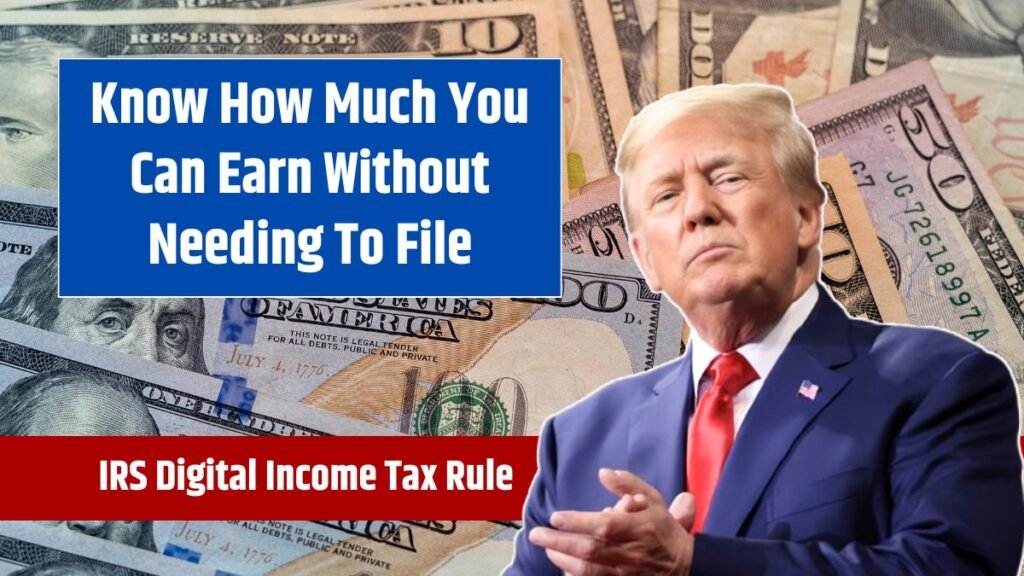The IRS has made a major change in tax reporting rules for digital income, effective for the 2024 tax year. If you earn over $5000 through digital payment platforms like PayPal, Venmo, or Cash App, you’ll now have to report it when filing your taxes. The key objective of the shift is to ensure that e-transactions are open and that all taxable earnings are reported.
So, how does this impact you? Let’s break down the main points from the new IRS mandate.
Table of Contents
1. Reporting
2. Oversight
3. Record-Keeping
4. Deadlines
5. Impact
6. FAQs
Reporting

As per the new requirement of IRS, necessity of reporting income above $5000 received through subsequent transactions.
Payments for goods and services
Freelance work or side gigs
Rideshare or delivery earnings
Rental income received digitally
Any other digital transactions where you receive money
Before this change, only amounts exceeding $600 had to be reported. The jump to $5000 is a significant adjustment in how the IRS monitors digital earnings.
Oversight
The IRS is expanding its scope of oversight to incorporate a more extensive range of digital transactions. This move reflects the growing reliance on electronic payments across various industries, from e-commerce to gig work.
With this rule, digital platforms may issue a 1099-K form to users who meet the new reporting threshold. However, even if you don’t receive this form, you are still responsible for reporting your income accurately.
Record-Keeping
If you earn money digitally, keeping accurate records is now more important than ever. Maintain documentation such as:
Payment receipts
Transaction history from digital payment platforms
Invoices for freelance or business income
Bank statements
Failure to report your income correctly could result in penalties or interest on unpaid taxes.
Deadlines
Since this rule applies to the 2024 tax year, affected taxpayers must report their digital earnings when filing returns in early 2025. Key deadlines include:
Tax Deadline Who It Applies To
April 15, 2025 General taxpayers in the U.S.
June 16, 2025 Americans living abroad
Impact

It’s mainly individual users and small businesses that rely on digital transactions that will be affected. If you earn income via apps or online selling in 2024, you need to:
– Track income well
– Set aside some money for tax at year-end
– Consult a tax attorney, if necessary
While lowering the threshold to $5000 might relieve a very small burden to lower earners, high digital earners must obey.
Digital financial rules are transitioning with the time. Continue listening, and taxes will flow smoothly.
FAQs
1. What is the IRS Digital Income Tax Rule?
The IRS Digital Income Tax Rule outlines the income thresholds that determine whether individuals must file a tax return, including earnings from digital platforms like freelancing, gig work, and online sales.
2. How much can I earn without filing taxes in 2025?
The filing threshold depends on your filing status and income source. For the 2024 tax year (filed in 2025), the standard filing thresholds are:
3. Do I need to report income from digital platforms like PayPal, Venmo, or eBay?
Yes, income from digital platforms, gig work, or online sales must be reported if it meets IRS filing requirements. Platforms may issue Form 1099-K if your total transactions exceed $600 in a year.
4. What happens if I don’t file when required?
Failure to file when required may result in IRS penalties, interest on unpaid taxes, and possible audits. If you owe taxes and do not file, you could face fines or legal action.
5. Do I need to file taxes if my income is below the threshold?
If your income is below the filing threshold, you may not be required to file. However, filing could still be beneficial if you qualify for tax credits like the Earned Income Tax Credit (EITC) or Child Tax Credit (CTC).


